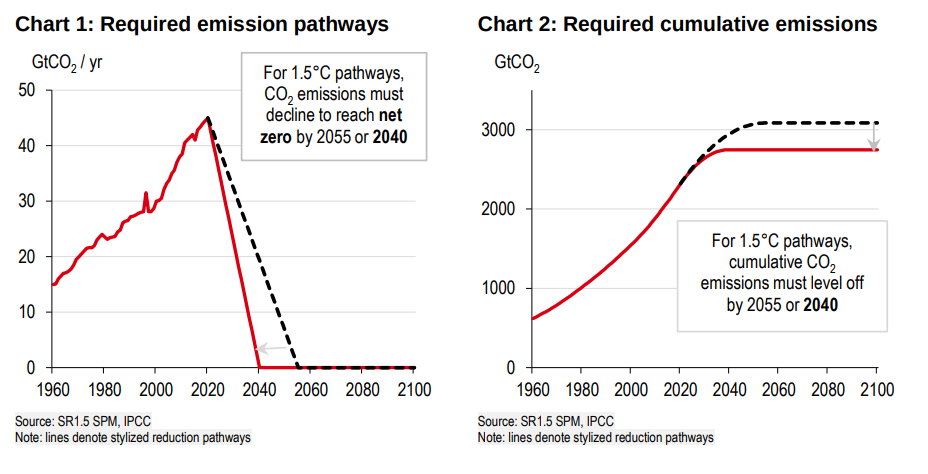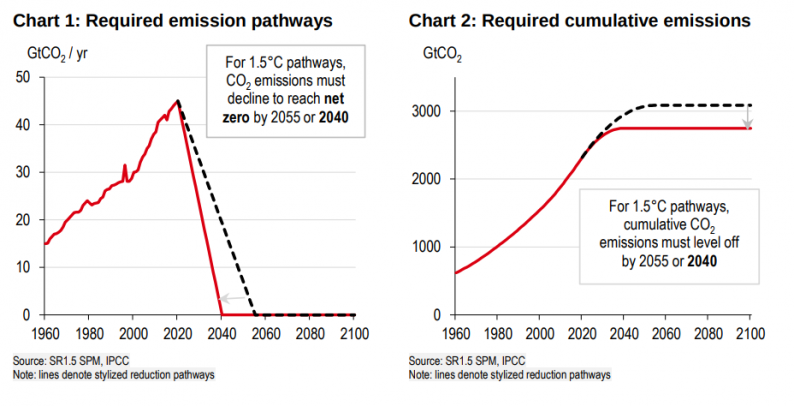Last week the Intergovernmental Panel on Climate Change (IPCC) released its ‘Special Report on Global Warming of 1.5 °C’. The long-awaited, highly anticipated report from the UN climate science body, is one of the most comprehensive studies on climate change. The report considers the actions required by the global community to limit global warming to 1.5°C, the lower target of the Paris Agreement.
The 1.5°C target is at the lower end of the Paris Climate Agreement target range. Limiting warming to this level will bring significant benefits to the world, avoiding the physical impact of the higher (but still acceptable) 2°C target.
According to HSBC’s Wai-Shin Chan, CFA Head, Climate Change Centre of Excellence, the physical impacts of limiting warming to 1.5°C include “roughly 10cm more in sea level rises, significantly more ice-free Arctic summers and double the biodiversity loss at 2°C.”
At the current rate, the 1.5°C threshold will be reached by 2040 according to the report, unless carbon dioxide emissions to climb by 45% by 2030 and reach net zero by 2050. Such a dramatic reduction in carbon dioxide emissions in such a short period will require “rapid, far-reaching and unprecedented changes in all aspects of society,” and more importantly, meeting this target will also need some removal of CO2 from the atmosphere.
While technically possible, removing CO2 from the atmosphere is still a relatively untested and expensive process.

Earlier this year, a Canadian company backed by Bill Gates called Carbon Engineering published a study claiming that it can extract carbon from the atmosphere for less than $100 a tonne, a significant reduction on the current price of around $600 per tonne. However, even this price is not low enough to make extracting large amounts of CO2 from the atmosphere economically viable.
Around 10 billion tons of carbon dioxide is emitted by human activity annually. Even Bill Gates does not have enough money to make a dent in this total at the current per-tonne cost of extraction. HSBC’s report on IPCC release estimates that roughly 100–1000Gt of CO2 will need to be removed from the atmosphere by the end of the century.












Leave A Comment